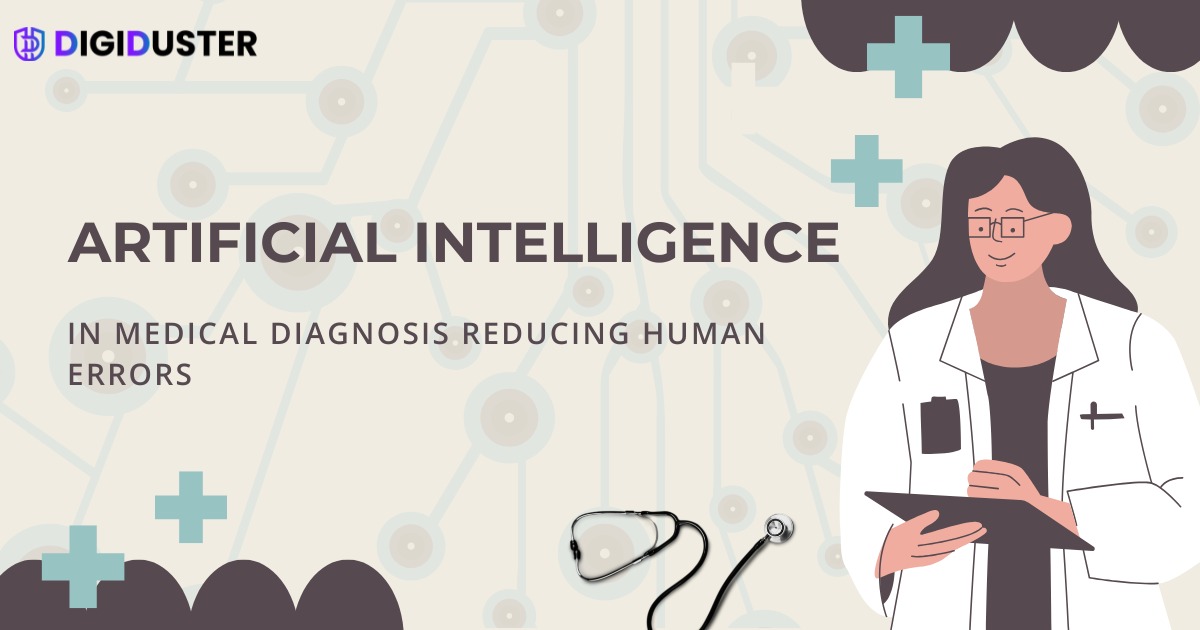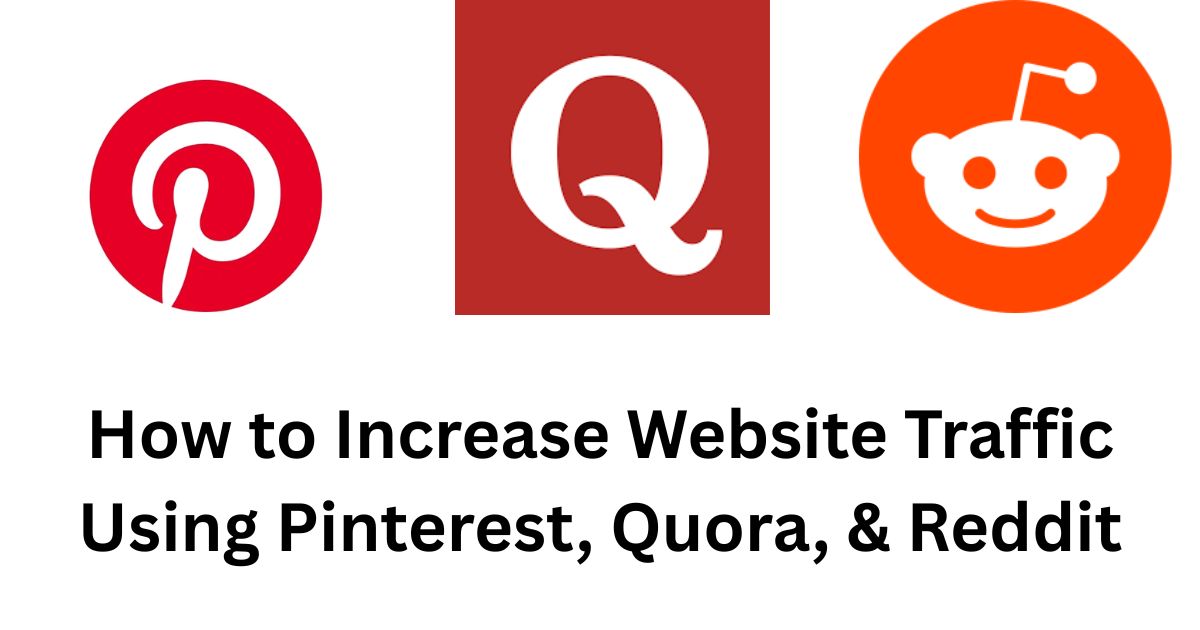Medical errors can be life-threatening. A simple mistake in diagnosis or medication can lead to severe consequences. That’s where Artificial Intelligence (AI) steps in to help. AI in medical diagnosis is transforming healthcare by improving accuracy, reducing human errors, and enhancing patient safety.
Doctors handle massive amounts of patient data daily. Fatigue, cognitive overload, and time constraints can lead to mistakes. AI, with its ability to analyze data quickly and detect patterns, offers a solution to minimize these errors. From diagnosing diseases to predicting risks, AI is making healthcare smarter and safer.
In this blog, we’ll explore how AI in healthcare diagnosis works, the common errors it helps prevent, and its real-world impact. Let’s dive in!
Understanding AI in Medical Diagnosis
- What is AI in Healthcare?
AI in medical diagnosis refers to technology that analyzes medical data to assist doctors in making better decisions. It processes vast amounts of data quickly, reducing the chances of errors. - Pattern Recognition in Medical Data
AI identifies trends and patterns in medical records, helping doctors spot diseases early and accurately. - Analyzing Electronic Health Records (EHRs)
AI scans and organizes patient data, ensuring accurate and up-to-date records, and minimizing documentation errors. - AI-Powered Medical Imaging
AI assists in analyzing X-rays, MRIs, and CT scans, detecting abnormalities that human eyes might miss. - Predictive Analytics in Healthcare
AI can predict health risks by analyzing patient history, lifestyle factors, and genetic data. - AI and Personalized Treatment Plans
AI helps doctors design customized treatment plans based on a patient’s unique medical history and needs.
Read also: How to Become a Data Scientist | Salary & Skills
Common Human Errors in Medical Diagnosis
- Misdiagnosis Due to Cognitive Overload
Doctors handle numerous cases daily. Fatigue and mental strain can lead to incorrect diagnoses. - Errors in Clinical Documentation
Incorrect or missing data in medical records can lead to wrong treatments or delayed care. - Medication Errors
Incorrect prescriptions or harmful drug interactions can cause severe health complications. - Delayed Diagnosis
Doctors may miss early symptoms of critical illnesses due to limited time and resources. - Overlooking Rare Conditions
Rare diseases are often misdiagnosed as more common conditions, delaying proper treatment. - Data Entry Mistakes
Manual data entry errors in patient records can result in incorrect diagnoses or medication issues. - Communication Errors
Miscommunication between healthcare professionals can lead to improper treatment plans.
How AI is Reducing Medical Errors
- Early Detection & Predictive Analysis
AI can detect high-risk conditions like heart disease and cancer before symptoms appear. - Automated Image Analysis
AI tools in radiology improve the accuracy of detecting abnormalities in medical scans. - Clinical Decision Support Systems (CDSS)
AI suggests evidence-based treatments, helping doctors make well-informed decisions. - Reducing Medication Errors
AI cross-checks prescriptions to flag dangerous drug interactions and dosage mistakes. - Improving Documentation with NLP
AI-driven Natural Language Processing (NLP) assists in transcribing and organizing clinical notes accurately. - Enhancing Remote Patient Monitoring
AI-powered devices track patient vitals and alert doctors about critical changes.
Real-Life Examples of AI in Medical Diagnosis
- AI in Radiology
Hospitals use AI to detect lung cancer and brain tumors more accurately in imaging tests. - AI-Powered Electronic Health Records
AI-driven EHRs help reduce prescription errors and improve patient safety. - AI in Cancer Detection
AI tools like IBM Watson help oncologists detect and treat cancers with greater accuracy. - AI in Pathology
AI helps pathologists identify diseases like tuberculosis and COVID-19 more efficiently. - AI in Cardiology
AI assists in diagnosing heart conditions by analyzing ECG reports and detecting irregularities. - AI in Diabetic Retinopathy
AI-powered eye screening tools help detect diabetic retinopathy early, preventing blindness.
Challenges & Ethical Considerations
- Data Dependency
AI relies on quality data. Poor data can lead to incorrect results. - Need for Human Oversight
AI should assist doctors, not replace them. Human judgment is still essential. - Bias in AI Algorithms
If trained on biased data, AI can lead to unfair treatment outcomes. - Patient Data Privacy
Handling sensitive medical data requires strict security measures. - Cost and Accessibility
AI implementation can be expensive, making it less accessible for smaller hospitals. - Integration Challenges
Integrating AI with existing healthcare systems can be complex. - Legal and Ethical Issues
Who is responsible if AI makes an incorrect diagnosis? - Trust Issues Among Patients and Doctors
Some patients and doctors may hesitate to trust AI-based recommendations.
Future of AI in Medical Diagnosis
- Personalized Treatments
AI can help create customized treatments based on an individual’s genetic profile. - Bridging the Gap in Medical Professionals
AI can assist in areas where doctors are scarce, improving healthcare accessibility. - AI and Robotics in Surgery
AI-powered robotic systems enhance precision in complex surgeries. - Advancements in Telemedicine
AI-integrated telemedicine makes remote diagnosis more accurate and efficient. - AI in Mental Health Diagnosis
AI tools help detect early signs of mental health issues like depression and anxiety. - Faster Drug Development
AI accelerates the process of discovering new drugs and treatments.
Final Thoughts
AI in medical diagnosis is revolutionizing healthcare. It reduces human errors, improves patient safety, and enhances medical decision-making. However, AI is a tool, not a replacement for human doctors.
The future of AI in healthcare is bright, and its integration with medical systems will only improve patient outcomes. As AI continues to evolve, it will play an even bigger role in shaping modern medicine.
Are you excited about AI’s potential in healthcare? Let’s discuss it!



